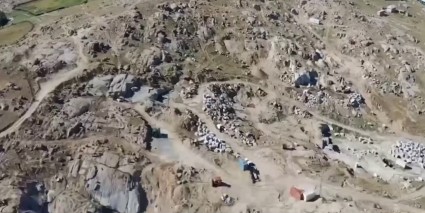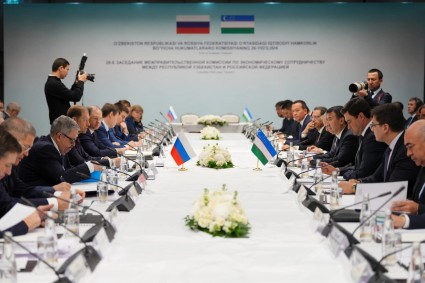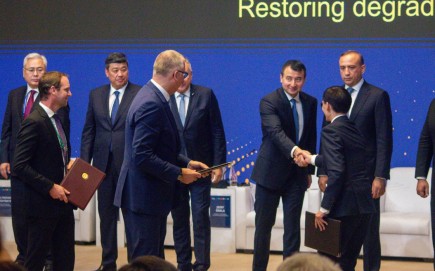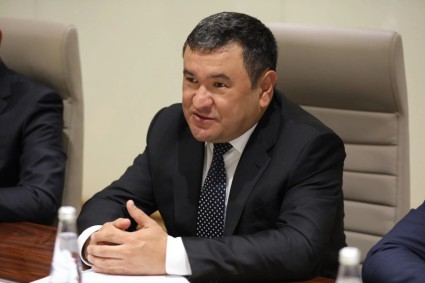The governor of the Central Bank, Timur Ishmetov commented at a press conference Friday on the possible impact of sanctions against Russian oil companies Rosneft and Lukoil on Uzbekistan.
According to him, any international sanctions, directly or indirectly, impact the economy of Uzbekistan, and the regulator takes these risks into account in its forecasts.
"The evolving situation in the world, one way or another, directly or indirectly, to a greater or lesser extent, even slightly, but will have an impact on Uzbekistan at a certain point," Ishmetov said.
According to him, the likelihood of the latest US and EU sanctions, including restrictions on oil products, affecting Uzbekistan is not ruled out. However, he emphasized that such supplies were usually carried out on the basis of long-term contracts.
He said that after sanctions have been imposed, negotiations usually take place between parties. Countries that should not be affected by the sanctions seek conditions under which such measures will not negatively impact their economies.
"During the negotiations, it is taken into account that the purpose of sanctions is not to harm third countries or their populations. Therefore, negotiations are regularly conducted to create conditions under which sanctions do not affect third countries. Such a mechanism exists. I am confident that it will be implemented this time as well. Although the risk is high, we hope that it will not have a major impact," he stated.
Control over the risks of secondary sanctions
Against the backdrop of the inclusion of banks in Kazakhstan, Kyrgyzstan, and Tajikistan in the sanctions list, Timur Ishmetov pointed out the importance of minimizing the risks of secondary sanctions in the banking sector.
"We take the risks of secondary sanctions very seriously. For several years now, especially the last two or three years, we have been systematically and effectively working on complying with sanctions requirements and improving compliance," he said. The Governor of the Central Bank added that from the very beginning, the regulator had maintained a firm position:
“In bank operations, the requirements of the sanctions regime are strictly observed; we do not interact with sanctioned goods, entities, or banks. This has been communicated to everyone – both the public and the banks themselves. We strictly control this. And I think it is precisely this position that has allowed us to avoid our banks falling under sanctions. In this direction, we will continue to strictly adhere to the established procedure,” he explained.
Now, Uzbekistan annually imports up to 2 million tons of oil and petroleum products. Most of the supplies come from Russia. In 2024, imports of oil and petroleum products stood at $1.97 billion, which is by 22.2% more than in 2023. In the first half of this year, imports reached $1.02 billion (-9.3% compared to January-June 2024).
Furthermore, Lukoil is the second largest gas producer in Uzbekistan after Uzbekneftegaz. In 2004, the government signed a production sharing agreement (PSA) with Lukoil for Kandym-Khauzak-Shady projects (for a period of 35 years, extended in 2014 for another 7 years – until 2046) and the South-Western Gissar project (which came into effect in 2007 and is designed for 36 years, until 2043).
To date, Lukoil, together with Uzbekneftegaz, has been named a company dominating the market for technical sulfur, and also produces and sells propane.
meanwhile, Uzbekistan has begun to increase oil imports from Kazakhstan. According to the National Statistics Bureau of Kazakhstan, while there were no fuel supplies to the neighboring country in January-August 2024 (due to an export ban), in the first eight months of this year Uzbekistan imported approximately 32,600 tons of Kazakh AI-95 and higher octane gasoline worth $22.5 million, as well as 50,600 tons of AI-92 gasoline worth $32.5 million.











